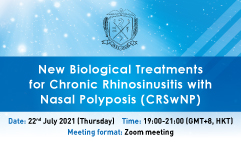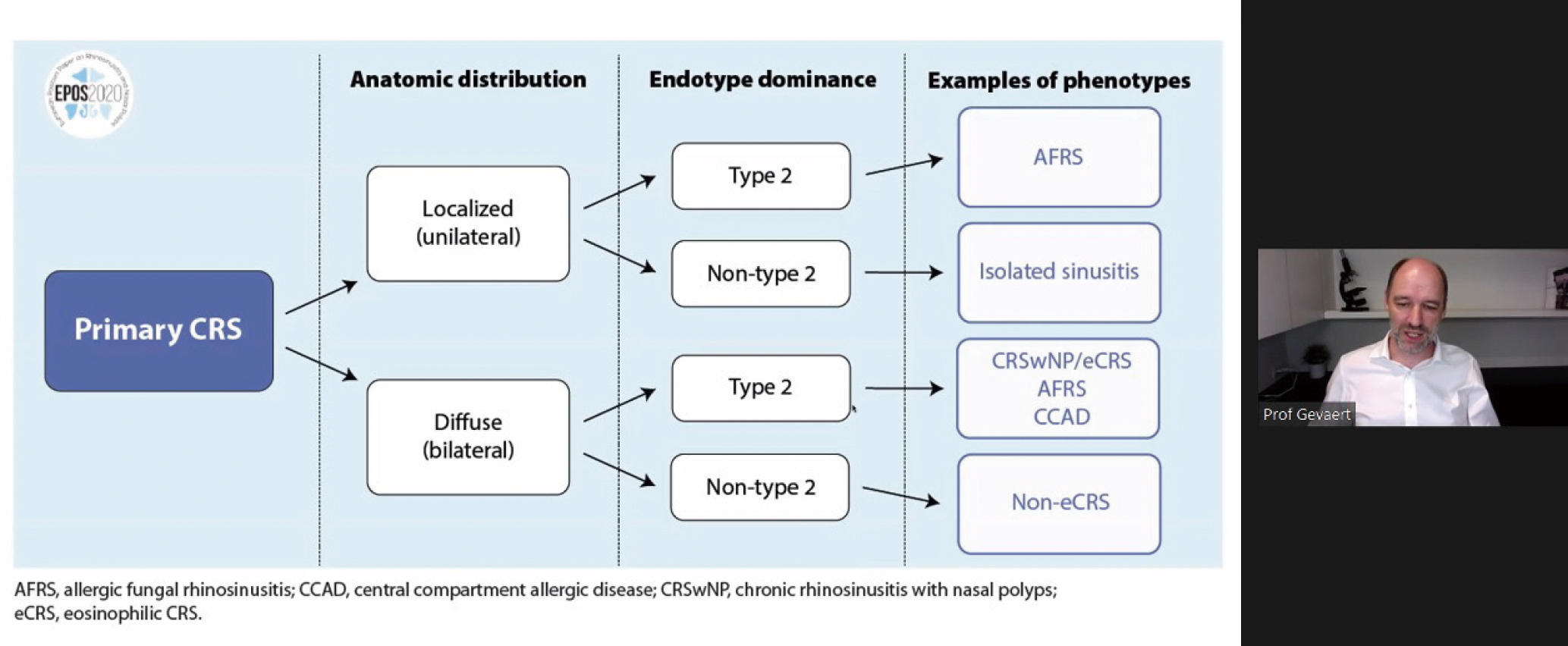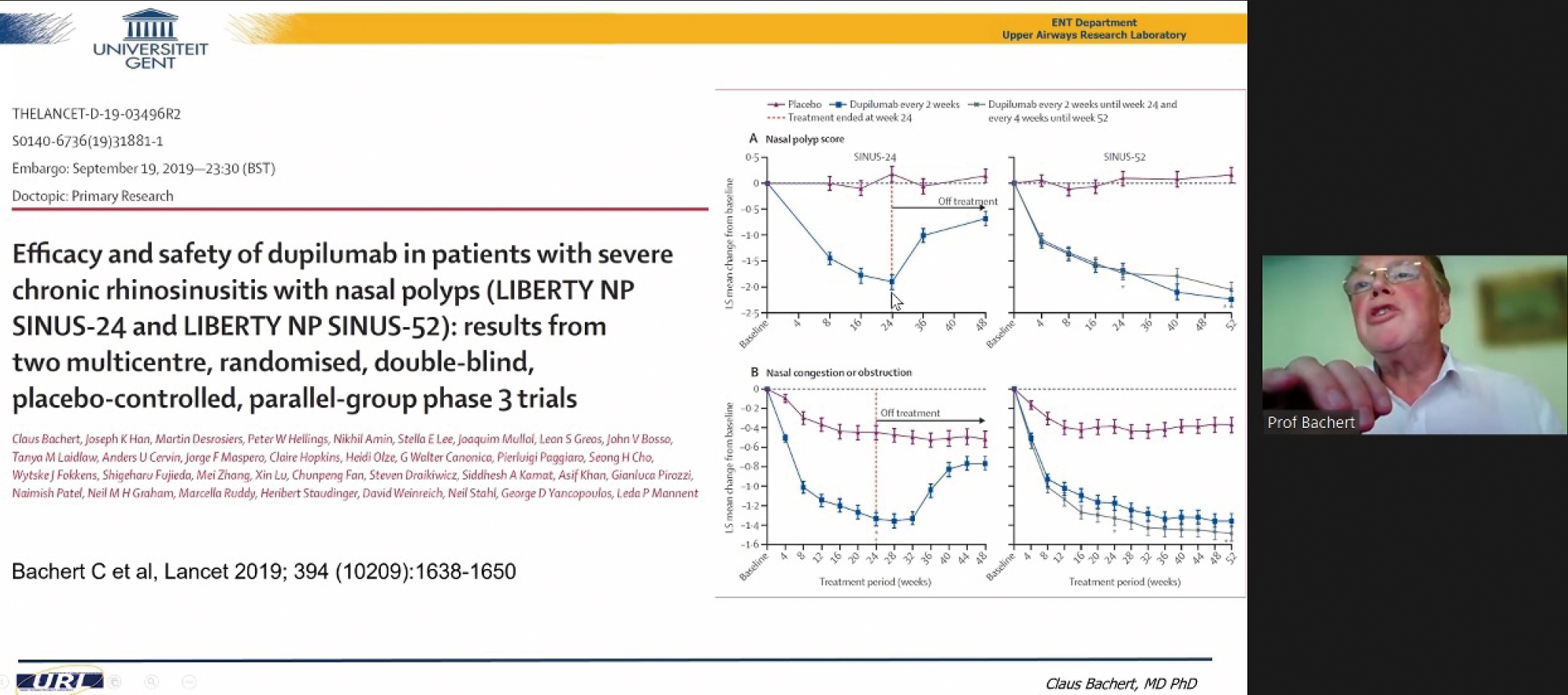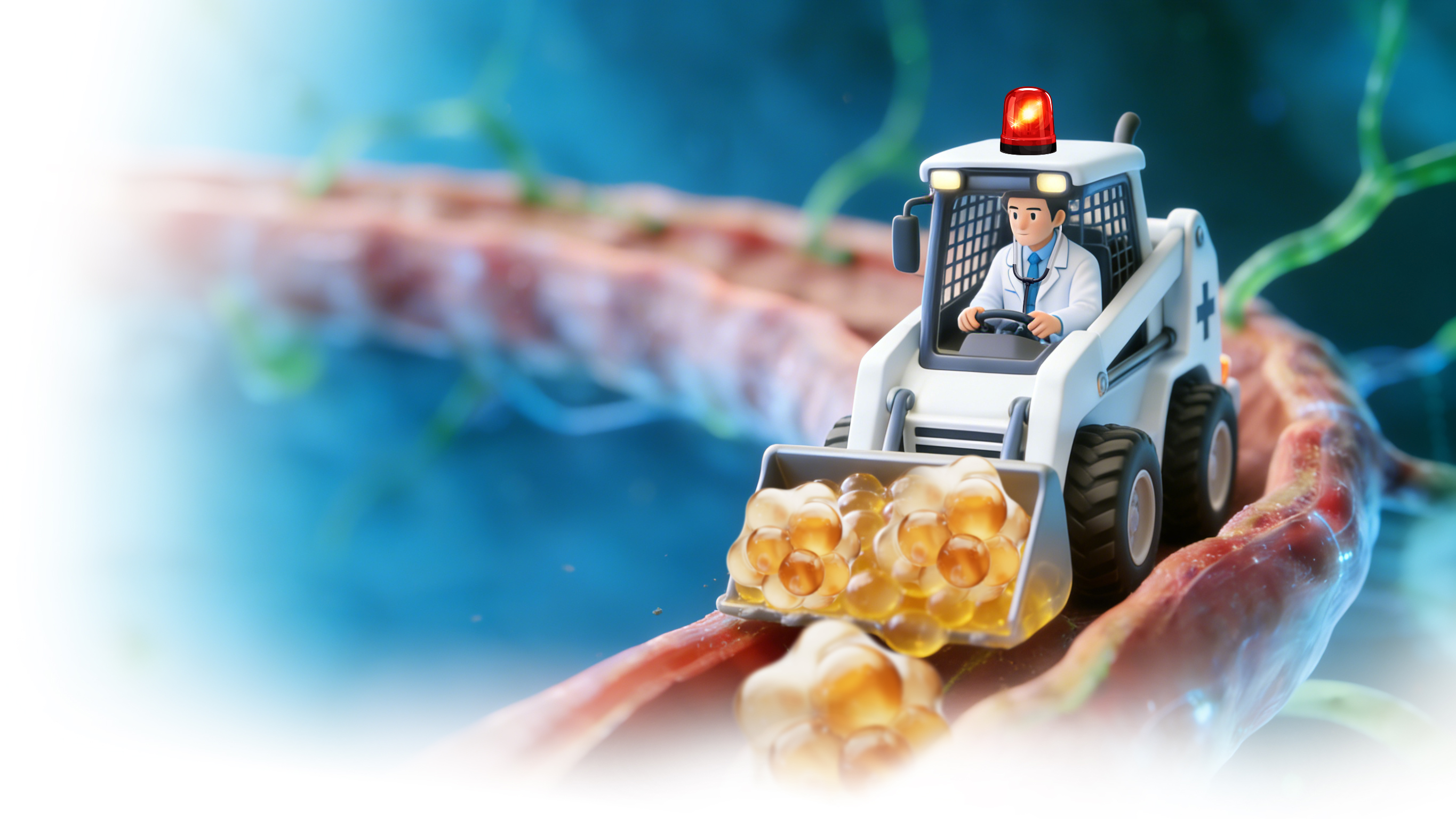

Chronic rhinosinusitis (CRS) describes a heterogeneous spectrum of persistent inflammatory diseases affecting the paranasal sinuses. In particular, CRS with nasal polyps (CRSwNP) represents the subtype of CRS considered to have a clinically more severe disease than those without nasal polyps. CRSwNP can further be subclassified into various types with heterogeneous pathologies. Although the underlying pathophysiology of CRS is yet to be fully understood, recent findings about the inflammatory mechanisms involved in CRS have provided insights on the development of biologic pharmacotherapies.
In a recent webinar titled “New Biological Treatments for Chronic Rhinosinusitis with Nasal Polyposis” organised by the Hong Kong Society of Otorhinolaryngology, Head and Neck Surgery on 22nd July, 2021, Prof. Philippe Gevaert and Prof. Claus Bachert of the Ghent University Hospital, Belgium were invited to address presentations on management of CRSwNP. Prof. Gevaert outlined the pathology and clinical guidelines for CRS. In addition, he presented the clinical outcomes yielded by various classes of treatment for CRSwNP including surgery and targeted therapy. On the other hand, the presentation of Prof. Bachert focused on biologic treatment for CRSwNP. Following the details of immune response involved in development of CRS, Prof. Bachert highlighted the mechanisms of action of biologics in CRSwNP. Essentially, he presented the recommended management protocol for CRSwNP with biologics. After the presentations, there was a discussion section, hosted by Dr. Raymond King-yin Tsang of the University of Hong Kong, on practical issues in managing CRSwNP.

Prof. Gevaert outlined the pathology of CRSwNP
 Prof. Bachert presented the established efficacy of biologic treatment in CRSwNP
Prof. Bachert presented the established efficacy of biologic treatment in CRSwNP





